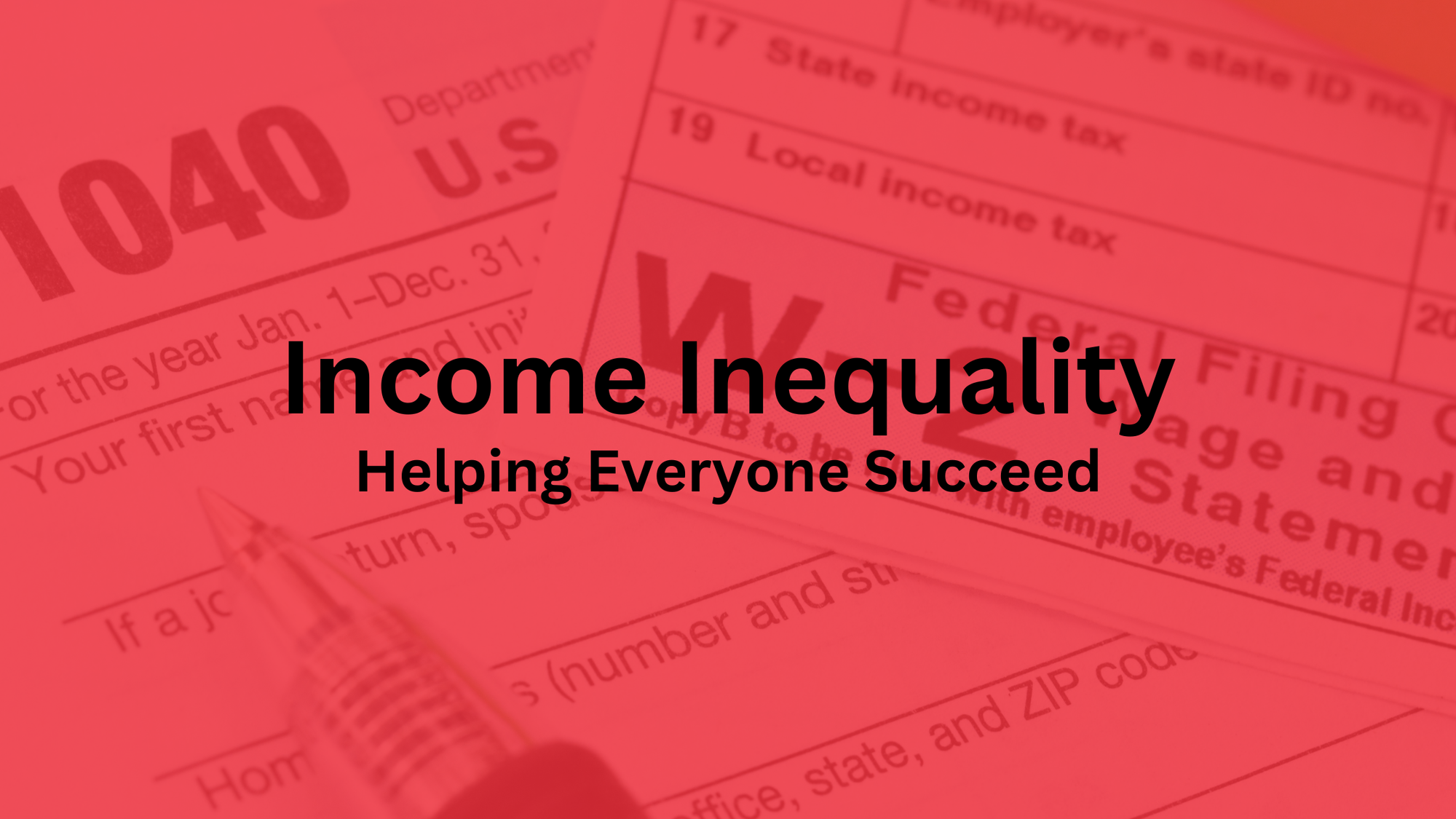Income Inequality
Income inequality in the United States has reached fundamentally destabilizing economic and social levels. We tried trickle-down economics, but the only trickle most workers saw was a drying up of their financial security.

Income inequality in the United States has reached fundamentally destabilizing economic and social levels. Much like the pervasive issue of data breaches, where security often takes a backseat to profits, the erosion of the middle class has frequently been overshadowed by corporate interests and short-term financial reporting, ie shareholder value.
The theory of trickle-down economics, which suggested that benefits to the wealthy and businesses would eventually flow down to everyone else, has clearly failed. CEO pay, for example, has soared by 1,209.2% since 1978 compared to just a 15.3% rise in typical workers’ pay. Clearly, Trickle Down doesn't trickle, and the only effective way to ensure the middle class receives their fair share of economic prosperity is through deliberate and equitable tax reforms. To fix income inequality, we must prioritize economic equity over shareholder value and move away from policies that disproportionately favor the wealthy.
The Failure of Trickle-Down Economics
The premise of trickle-down economics was that cutting taxes for the wealthy and deregulating industries would lead to increased investments, job creation, and overall economic growth that would benefit all segments of society. However, after decades of implementing such policies, it is clear that the expected benefits often fail to materialize for the majority of the population.
CEO pay, for instance, has skyrocketed from being roughly 20 times that of the average worker in the 1960s to often over 300 times today. Meanwhile, wages for most workers have stagnated when adjusted for inflation. This immense growth in inequality shows that the wealth generated at the top has not trickled down; it has, instead, pooled up.
Therefore, the most direct and effective method to ensure a fair distribution of the economic pie is through comprehensive tax reform. We tried trickle-down economics, but the only trickle most workers saw was a drying up of their financial security.
The Reality of Current Tax Measures
When looking at the impact of current tax policies, it’s clear that while they may generate headlines for their boldness, the actual effects on everyday Americans, especially those struggling the most, are minimal:
- Top 1% Tax Cuts: Massive reductions in tax liabilities for the wealthiest, while wage earners see barely a change in their take-home pay.
- Ineffective Corporate Taxes: Corporations continue to benefit from loopholes and reductions, contributing less to the national budget.
These measures often promise economic growth and higher wages but fail to deliver meaningful change for most of the population. The disparity continues to grow, leaving many feeling left behind in their own country’s economy.
My Proposal for Economic Equity
To truly tackle income inequality, we must overhaul the tax system with a focus on fairness and substantial impact. Here's how we can achieve this:
Graduated Income Tax System
Implement a more progressive tax system where the wealthy pay a significantly higher percentage, ensuring they contribute their fair share towards the nation's growth and welfare. This includes:
- Raising the Top Marginal Tax Rate: Increase taxes significantly on annual incomes over $10 million to 85%.
- Closing Loopholes: Targeted measures to prevent high earners and corporations from exploiting tax loopholes.
I am not an economist, but here are my initial thoughts on revised tax brackets:
| Income Threshold ($) | Adjusted Rate (%) |
|---|---|
| 0 - 11,610 | 0 |
| 11,610 - 46,275 | 10 |
| 46,275 - 110,650 | 20 |
| 110,650 - 193,750 | 24 |
| 193,750 - 441,000 | 30 |
| 441,000 - 1,000,000 | 40 |
| 1,000,000 - 2,000,000 | 45 |
| 2,000,000 - 5,000,000 | 55 |
| 5,000,000 - 10,000,000 | 70 |
| Over 10,000,000 | 85 |
Corporate Tax Accountability
Enforce much stricter penalties and rules for corporate tax evasion, ensuring that multinational corporations contribute appropriately to the economies they benefit from.
Tax Incentives for Workers
Expand tax credits and deductions aimed specifically at middle and lower-income families to increase disposable income and financial stability.
Challenges and Considerations
Just as with data privacy, where stringent measures are necessary to protect user information, implementing rigorous tax policies can be seen as radical or even unfeasible by some. Concerns typically include:
- Economic Disincentives: Critics argue that high taxes might discourage investment and economic participation.
- Administrative Complexity: Managing a more detailed tax code could increase the burden on the IRS and other governmental bodies.
However, if the goal is to revitalize the middle class and reduce income inequality genuinely, then these are hurdles worth overcoming. Investing in a just and equitable tax system is an investment in the future stability and prosperity of our nation.
Help Make This Happen
As with all systemic changes, public support and understanding are crucial. I invite you to join this conversation, share your thoughts, and contribute to shaping a policy that truly makes a difference in addressing income inequality.
Your support can ensure these ideas reach the wider public and stimulate meaningful change. If you believe in this cause, please consider making a donation to support our efforts to bring these issues to the forefront of political discourse.
Additional Resources


